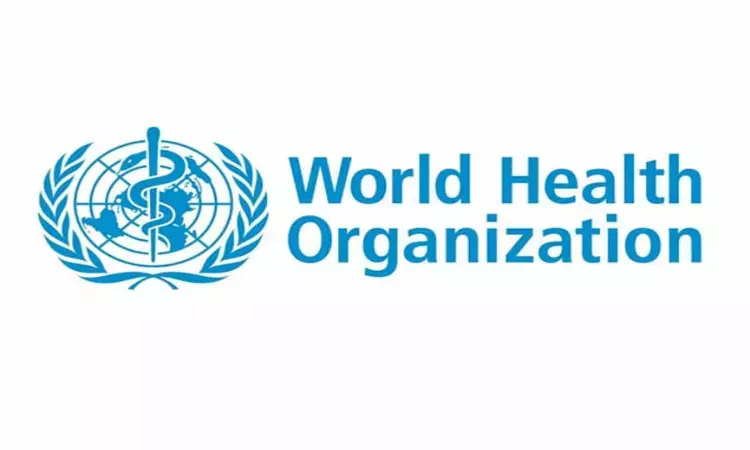- Home
- Medical news & Guidelines
- Anesthesiology
- Cardiology and CTVS
- Critical Care
- Dentistry
- Dermatology
- Diabetes and Endocrinology
- ENT
- Gastroenterology
- Medicine
- Nephrology
- Neurology
- Obstretics-Gynaecology
- Oncology
- Ophthalmology
- Orthopaedics
- Pediatrics-Neonatology
- Psychiatry
- Pulmonology
- Radiology
- Surgery
- Urology
- Laboratory Medicine
- Diet
- Nursing
- Paramedical
- Physiotherapy
- Health news
- Fact Check
- Bone Health Fact Check
- Brain Health Fact Check
- Cancer Related Fact Check
- Child Care Fact Check
- Dental and oral health fact check
- Diabetes and metabolic health fact check
- Diet and Nutrition Fact Check
- Eye and ENT Care Fact Check
- Fitness fact check
- Gut health fact check
- Heart health fact check
- Kidney health fact check
- Medical education fact check
- Men's health fact check
- Respiratory fact check
- Skin and hair care fact check
- Vaccine and Immunization fact check
- Women's health fact check
- AYUSH
- State News
- Andaman and Nicobar Islands
- Andhra Pradesh
- Arunachal Pradesh
- Assam
- Bihar
- Chandigarh
- Chattisgarh
- Dadra and Nagar Haveli
- Daman and Diu
- Delhi
- Goa
- Gujarat
- Haryana
- Himachal Pradesh
- Jammu & Kashmir
- Jharkhand
- Karnataka
- Kerala
- Ladakh
- Lakshadweep
- Madhya Pradesh
- Maharashtra
- Manipur
- Meghalaya
- Mizoram
- Nagaland
- Odisha
- Puducherry
- Punjab
- Rajasthan
- Sikkim
- Tamil Nadu
- Telangana
- Tripura
- Uttar Pradesh
- Uttrakhand
- West Bengal
- Medical Education
- Industry
HCQS and azithromycin combo in COVID-19 potentially lethal, indicates WHO data

WHO pharmacovigilance data indicates that Hydroxychloroquinee and azithromycin have increased cardiovascular toxicity.It therefore should not be administered outside of a clinical trial.
COVID-19 cases are on the rise in the absence of a proven effective drug or vaccine. Hydroxychloroquine and azithromycin, alone or in combination, have been proposed for treatment of COVID-19 patients.
According to a large observational, retrospective meta-analysis of a World Health Organization (WHO) database on adverse drug reactions Hydroxychloroquine and azithromycin may have a serious impact on the cardiovascular system and are a potentially lethal combination.The research, "Cardiovascular Toxicities Associated with Hydroxychloroquine and Azithromycin: An Analysis of the World Health Organization Pharmacovigilance Database" has been published in Circulation, the flagship journal of the American Heart Association.
The meta analysis analyzed more than 21 million adverse event case reports across all medication classes from more than 130 countries between November 14, 1967, and March 1, 2020, mainly before the COVID-19 pandemic.
The study compared cardiovascular adverse-drug-reactions (CV-ADRs) in patients who received hydroxychloroquine, azithromycin or the combination of both medications with all other cardiovascular medications in the database.
From the more than 21 million case reports of adverse drug reactions, researchers extracted case reports for hydroxychloroquine and azithromycin, alone or in combination:
76,822 adverse event reports were associated with hydroxychloroquine alone, and in 28.4% of those cases (21,808), hydroxychloroquine was suspected to be associated with the adverse event;
89,692 adverse event reports were associated with azithromycin alone, and in 60.8% of those cases (54,533), azithromycin was suspected to be associated with the adverse event; and
607 adverse event reports reported were associated with the combination of both medications.
The analysis found:
There was a statistically significant greater reporting of prolonged-QT (LQT) and/or ventricular tachycardia including Torsades-de-Pointes (TdP/VT) for each medicine individually in the suspected cases compared to all other medications.
Hydroxychloroquine was also significantly associated with the development of conduction disorders (atrioventricular block and bundle branch block) and heart failure.
Azithromycin monotherapy was associated with greater reporting of LQT and/or TdP/VT than hydroxychloroquine alone (0.8% vs. 0.3%, respectively).
The combination of hydroxychloroquine and azithromycin was associated with a greater reporting of LQT and/or TdP/VT than either medication alone (0.6% vs. 1.5%, respectively).
No other cardiovascular adverse events, including cardiac ischemia and myocarditis, were significantly associated with these medicines.
The proportion of cases that resulted in death for TdP/VT cases was 8.4% (7/83) with hydroxychloroquine, and 20.2% (52/257) with azithromycin, vs. 0% (0/53) and 5.4% (12/223) for LQT without TdP/VT with hydroxychloroquine and azithromycin, respectively.
The researchers conclude, "reports of potentially lethal acute cardiac proarrhythmogenic effects [promoting irregular heart rhythms] have been described mainly with azithromycin but also with hydroxychloroquine. Their combination yielded an even stronger signal. Hydroxychloroquine was also associated with potentially lethal heart failure when exposure was prolonged over several months. While the absolute case numbers were low, these CV-ADRs are important to bear in mind in the setting of COVID-19 patients who may present with additional risk factors for LQT/TdP including inflammation with elevated interleukin-6, hypokalemia, numerous interacting medications, bradycardia and higher hydroxychloroquine doses."
As detailed in the American Heart Association's joint guidance from April 8, 2020, "Considerations for Drug Interactions on QTc in Exploratory COVID-19 (Coronavirus Disease 2019) Treatment," both medications are known to have potentially serious complications for people with cardiovascular disease including increased risk of sudden death, and the effect on the QT interval or arrhythmia risk of these two medications combined has not been studied. "Hydroxychloroquine and azithromycin have increased cardiovascular toxicity, should not be administered outside of a clinical trial, and require close additional cardiovascular monitoring and treatment," said Mariell Jessup, M.D., FAHA, Chief Science and Medical Officer of the American Heart Association.
For further reference log on to:
heart.org and stroke.org
Dr Kamal Kant Kohli-MBBS, DTCD- a chest specialist with more than 30 years of practice and a flair for writing clinical articles, Dr Kamal Kant Kohli joined Medical Dialogues as a Chief Editor of Medical News. Besides writing articles, as an editor, he proofreads and verifies all the medical content published on Medical Dialogues including those coming from journals, studies,medical conferences,guidelines etc. Email: drkohli@medicaldialogues.in. Contact no. 011-43720751


